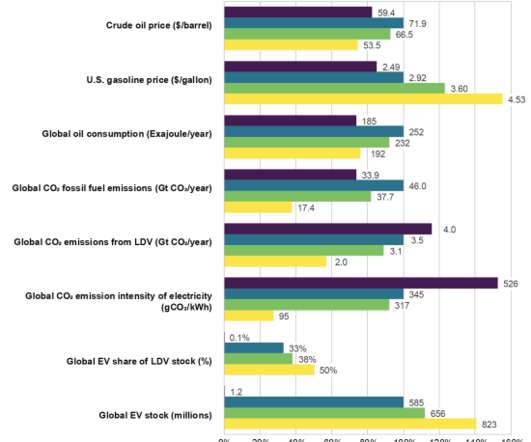UMD collaborative study finds that fuel efficiency of one car in household may be cancelled out by next car purchase
Green Car Congress
MARCH 3, 2021
While this sounds like an all-too-logical conclusion, the study reports a 57% reduction in the benefits of driving the fuel efficient car for carbon emissions purely based on the purchase of the second vehicle. What we really wanted to do is see how households are making decisions when they purchase and own more than one vehicle.





















Let's personalize your content